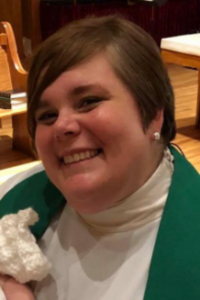 By Pastor Norma Malfatti
By Pastor Norma Malfatti
This past weekend many congregations heard Psalm 51 in worship. This psalm is traditionally known as the psalm that King David prayed when the prophet Nathan, on behalf of God, called him out for his egregious sins of sexual abuse when he decided he needed to be with Bathsheba and then had her husband killed on the battlefield to cover up his crime.
At this point David can only hope that God has mercy. And we hear that desperation from the psalmist in the words, “Against you and you alone have I sinned O Lord.”
That’s where the wheels fall off the wagon for me. Could David really say that he only sinned against God? What about Bathsheba? Uriah, her husband? Or even Uriah’s comrades who were instructed to abandon him on the battlefield? Surely David sinned against more than just God.
“To sin against God was to sin against the community, whether it be an individual or the whole community.”
This brings into stark relief the cultural differences between 21st Century United States and the ancient world (and some places today too). In the ancient world, community life and relationship with God were inextricably linked. To sin against God was to sin against the community, whether it be an individual or the whole community. To sin against your neighbor was to sin against God. This is why Paul in 1 Corinthians is adamant that when one in the Body of Christ suffers, then we all suffer and when one is honored, then we all rejoice.
Yet this is not how we see ourselves today. Our culture teaches us that we ought to cover up our sins or at least downplay play them. Celebrity and political scandals notwithstanding, most of the time confession and the request for forgiveness happens in the writing of a note or the occasional conversation where we shamefully admit to our failings and hope the whole matter can be forgotten.
A FEW YEARS AGO, I had the privilege to be in South Africa on a study tour to learn about racial reconciliation with the hope of bringing that learning back to the United States as we wrestle with systemic racism here. While there I learned about the philosophy of ubuntu, which roughly translates to “I am because we are.”
In his book, No Future Without Forgiveness, Archbishop Desmond Tutu speaks of ubuntu like this, “A person with Ubuntu … does not feel threatened that others are able and good, for he or she has a proper self-assurance that comes from knowing that he or she belongs in a greater whole and is diminished when others are humiliated or diminished, when others are tortured or oppressed, or treated as if they were less than who they are.”
“Ubuntu can be roughly translated as ‘I am because we are.’”
As we lament yet another racially motivated violent act – this time against women of Asian descent in Georgia – I am pondering again ubuntu and what it means to be the Body of Christ. This past Sunday members of ELCA congregations were called to observe a day of lament for the violence and hatred directed at our siblings of Asian descent simply for being who they are.
Whether or not your congregation observed this day, I invite you to join me in lamenting the fear of violence that our neighbors are experiencing. But I also urge you to reflect on ubuntu and just how God works in your life to create a heart and spirit of relational love.
